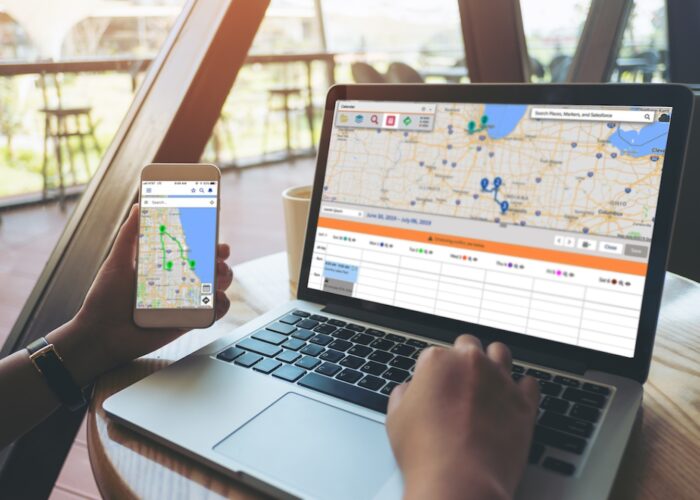
As seen in SF Society Magazine, Autumn 2019 Issue – Geolocation has quite an interesting backstory. Its foundational component, the Global Positioning System (“GPS”), was initially established for governmental use. Geolocation quickly became a multi-billion dollar industry when commercial restrictions were lifted from GPS. Thanks to its current public status and advances in Internet technologies, geolocation has become part of a modern business model and is now a critical component of the tech stack for companies that want to stay competitive. Businesses are not only using geolocation to complete crucial operational functions, they are also beginning to build their operational functions around it.
A CRM system is widely known as the pivotal piece of nearly any company’s tech stack. Since CRM data generally has geographical information attached to it, geolocation has made it easy to map location data and show related information to provide users with greater insights. For this reason, businesses both large and small can organize their data and create better processes by adding geolocation to their tech stack.
Salesforce is excellent for capturing and helping users understand the “who, what, and when” but insights about “where” are unlocked through location data. Geolocation can be integrated into almost any business process to increase its efficiency, bringing new data to light and improving the outcomes of each process. Here are some examples of common business practices that geolocation can accelerate.
Scheduling for Mobile Sales and Service Teams
Mobile sales and service are very demanding professions that tend to be costly and require intensive management and coordination. With so many resources channeled towards sales and service efforts, individual reps must yield high returns. Every mobile rep has a calendar, and geolocation apps such as Geopointe can be used to manage their appointments, schedules and routes so they spend less time planning or driving and more time with prospects and customers.
Think about the following use case: Bruce, a mobile service rep for a gas company has recurring customer visits to service gas monitors, ensuring they work properly. Failure to service these monitors could be a huge liability to the company. Bruce can use geolocation to view the accounts he is servicing on a map alongside the current calendar, and schedule his appointments for the week ahead, all while optimizing his daily routes by travel time, filling his time in the most optimal way.
Bruce can then view his updated CRM calendar, built with geolocation, through his primary calendar. While on the road executing appointments, Bruce can take advantage of checking into his appointments to confirm his arrival and take notes, capturing additional information related to the appointment. This combines the benefits of geolocation with the benefits of CRM, adding tremendous value for the rep, management, and the company…
This article is featured in SF Society Magazine. To read more, please fill out the form below to download the free Autumn 2019 issue:



